A story on CBC was about employers struggling to get workers. In the comment section, a farmer mentioned that no one wanted to come work on his farm anymore and that everyone was lazy. I wanted to point out that farms are remote. Perhaps he was having difficulty finding employees because of transportation issues. Reduced transit schedules due to COVID might make it difficult for people to commute to the farm. But someone made a snide remark about people not wanting to be slaves any more and farmer took offense. He was upset at being called a slave owner and someone pointed out that wage slavery is still slavery. It then degenerated into name-calling which so many online comment sections do. But it got me thinking about wage slavery. I am no fan of work. I don’t believe in the protestant, “work is good” mentality and to be frank, find much of work to be tedious and demeaning.
One bright side of the pandemic is that I am not alone in this. Many people, have had an opportunity to re-evaluate their personal situation. Whether through the loss of employment, or changes in employment, their situation has changed. People who were considered low skilled were suddenly ‘essential’. There is a wonderful podcast by Ezra Klein and Betsey Stevenson talking about this very topic. One of the interesting parts of this story is the debate on whether giving people social assistance makes them less likely to work.
The argument is that if people do not need to work, they won’t. As long as basic needs are met, there is no incentive to work. This is especially true of minimum wage, low-skilled, unfulfilling jobs.
For example, in the photo above a bunch of Burger King employees put up a sign about them all quitting.
“They [some employees] wanted to put up a sign to say, you know sorry there’s really not going to be anyone here,” Flores said. “Just kind of a laugh to upper management.”
Flores, the restaurant manager had been working 50/60 hour weeks. And at one point the kitchen didn’t have working air conditioning and after working in 90 degree heat she had to go to the hospital due to dehydration.
As a personal anecdote, when I was around 16 years old I worked in a restaurant in Osoyoos one summer. I was making minimum wage, as were most people there; around $5.25. Someone, presumably a customer, smeared their shit all over the walls of the bathroom. At the time I was a dishwasher, so literally the lowest of the low in the restaurant. The manager handed me a mop and told me to go clean the restroom. Now that I am older I wish I had refused. This was a clear example of where the fear of being unemployed overrode what should have been a health & safety issue.
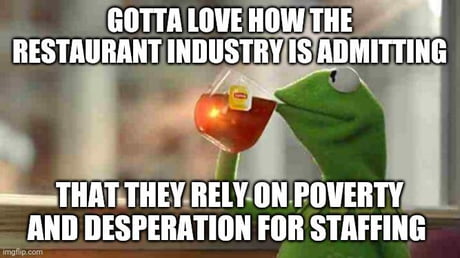
Many people, like the farmer on the CBC are blaming government handouts such as CERB or unemployment insurance. They fear that because people have other options they are not being forced to work jobs that are undesirable. That without the threat of starvation or homelessness, no one will be willing to put up with poor working conditions.
During the pandemic, many front-line workers like tellers, or restaurant workers were literally putting their lives on the line. Many had to put up with abuse for enforcing pandemic rules and received nothing for their efforts. Others did receive some sort of ‘hero pay’. Only to have employers claw that back later. Grocery chains like Metro, Loblaws, Sobey’s and Safeway ended the ‘hero pay’ they were giving front-line workers a year ago, in the middle of the pandemic, while the businesses were deemed ‘essential services’ ensuring massive profits.
In a story on BNN Bloomberg recently with Craig Brummell, a pet food manufacturer in Ontario complains about the difficulty in hiring people. Brummell added that those who do show up “last until noon, or one day, or three-four days, or maybe a week. They’re not leaving for other jobs. They just don’t want to work.” he said.
It should be noted that Mr. Brummell’s business is booming with many people adopting new pets during the pandemic. While he has supply chain issues due to an increase in demand, that’s really a good problem to have.
He also warns that the difficulty in hiring will push businesses to automation, like it is a bad thing. It isn’t. If we have alternatives. This is where universal basic income comes in. If people have their basic needs taken care of then they are free to find more fulfilling employment. Fulfilling employment is one of the major contributors to happiness and well-being. There will always be that small percentage that won’t work but they’re here right now regardless.
Central to the issue of employment is minimum wage and inequality. Minimum wage in the US is currently set at $7.25/hour. In Ontario Canada it is $14.35/hour. If the minimum wage had actually kept up with inflation it should be around $24/hour and by 2025 around $30.
If we take housing as a benchmark and extrapolate from that we get some interesting figured. Housing is supposed to be 35% of your income in an ideal world. Rent in Toronto is for a 1 bedroom apartment is $1,432 which means the take home salary should be $4,091. That is a net monthly income of $5,400. This means the annual salary is $64,800 which, if expressed as an hourly wage is $31.15 an hour.
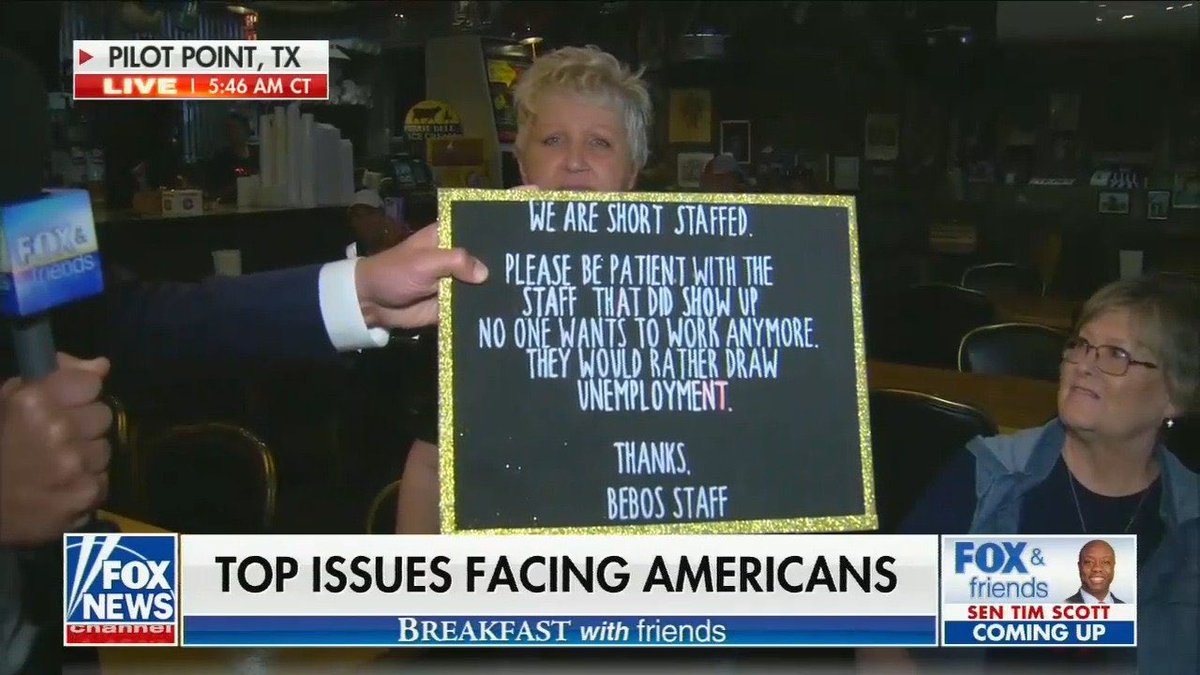
Now immediately the cry of “Inflation!” occurs. “Well if people get paid more then everything will cost more; a Big Mac is going to be like $18!” However, we can look to other countries and see that isn’t so.
Big Mac in USA: $4.80
Big Mac in Denmark: $5.15
McDonalds worker salary in USA: $7.25
McDonalds worker salary in Denmark: $22.00
While the McDonalds worker salary in Denmark is triple that of it’s US counterpart, the cost of Big Mac is a mere 35 cents more. How is this possible? The biggest difference is that it’s really hard to become a billionaire in Denmark. Personal income tax is 55.9%. As a socialist democracy Denmark recognizes the benefits of ensuring that even people working in entry level jobs get a decent standard of living. It does this by ensuring that everyone pays their fair share.
Workers have begun to realise that employers and managers don’t make the economy run, they do. And now they want their fair share which brings us to inequality.
Did you know before the pandemic there was one person with over a 100 billion dollars? Now there are nine.
U.S. Billionaires gained over a trillion dollars since the pandemic began.
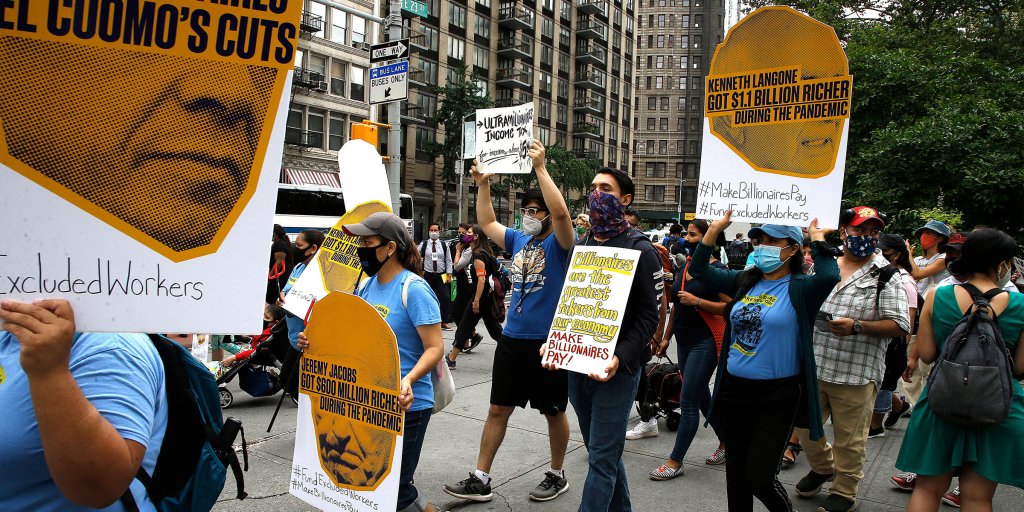
In the North America, major corporations pay less in taxes as a percentage of income than individual tax-payers do. Amazon paid an effective tax rate of 12%, a far cry from the 35% it should have been paying. In the meantime there are countless stories of workers being mistreated and being forced to work in terrible conditions.
If we force corporation to pay their share of taxes. If we close tax loopholes. If we raise the minimum wage to what it should be. The economy is not going to collapse. Inflation is not going to skyrocket. It does mean there will be fewer ultra-wealthy billionaires, I think is a sacrifice we can make.
In the meantime, there is a call for a general strike in the US; something common in Europe but unheard of in America. I hope they succeed. Power to the workers!

